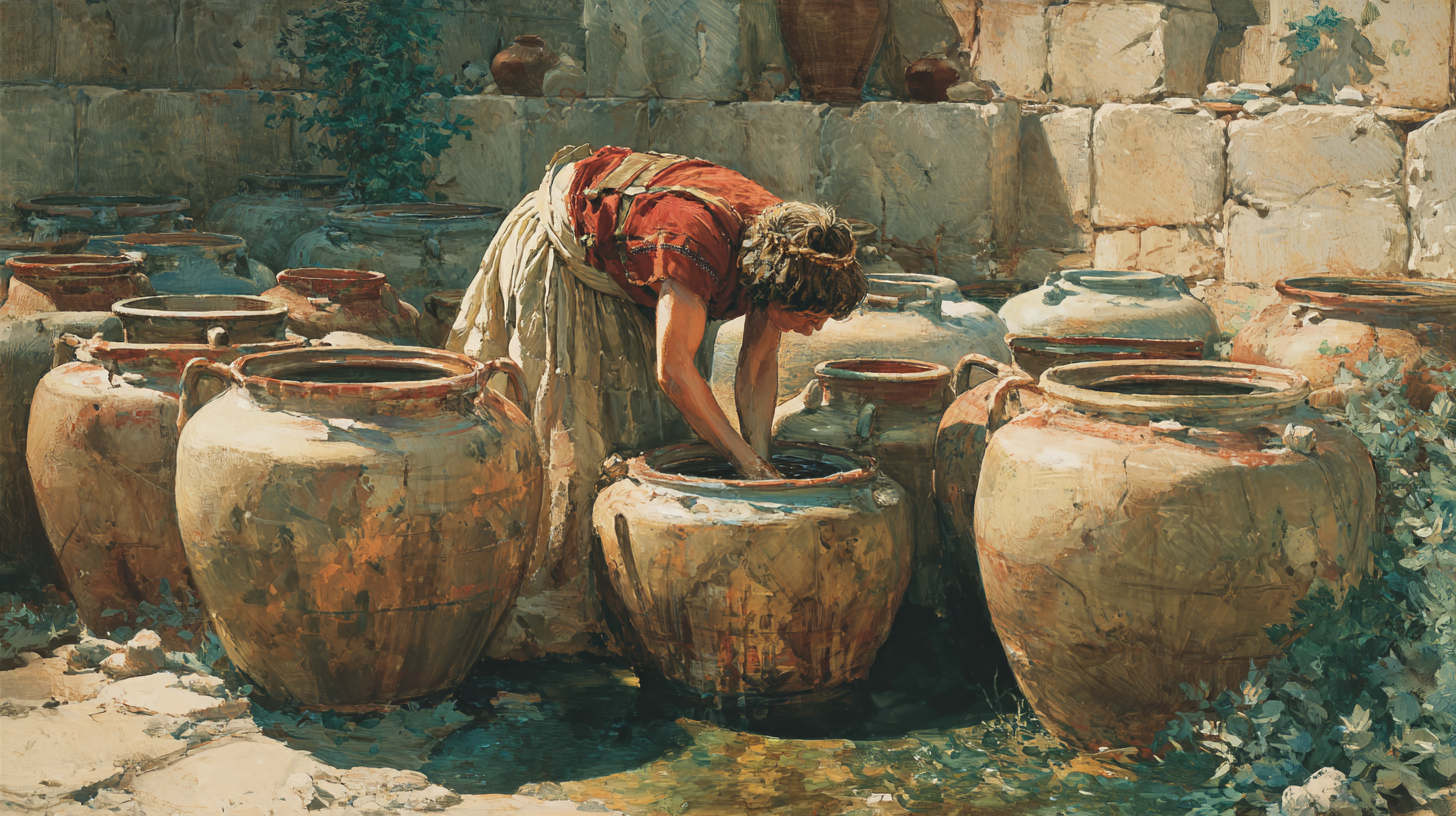From Water to Wine: Obedience and Transformation (John 2:1–12)
The story of Jesus turning water into wine at the wedding in Cana (John 2:1–12) is one of the most beloved accounts in Scripture. On the surface, it looks like Jesus simply saved a wedding party from embarrassment. But John calls it a sign: a moment pointing to something greater.
This miracle shows us the heart of God: His ability to take what is ordinary, incomplete, or seemingly insignificant and transform it into something abundant, joyful, and life-changing.
The Significance of the Jars
John highlights an important detail: six large stone jars, used for Jewish purification rituals. They symbolized the Old Covenant, good but incomplete. The number six itself represents imperfection, falling short of the fullness represented by seven.
Jesus could have asked for new vessels, but instead, He chose the old jars and filled them with something new. The water used for ritual cleansing was transformed into wine—the symbol of celebration, abundance, and the New Covenant of grace.
In that moment, Jesus revealed that He doesn’t discard the ordinary. He transforms it.
The Power of Obedience
The miracle didn’t happen until the servants obeyed. Jesus told them to fill the jars with water, to the brim. From their perspective, it didn’t make sense. They were carrying water, not wine. And then Jesus asked them to take some to the master of the feast. Imagine the risk; they were about to serve wash water at a wedding!
Yet, their obedience created the space for God to do what only He could do. The miracle was not in the filling, but in the trusting. Mary’s words to the servants remain a timeless key to transformation:
“Do whatever He tells you.” (John 2:5)
My Story: Learning to Offer My Jars
I had my own “Cana moment” years ago in Hoboken, New Jersey. I was in my late 20s, serving as a worship leader, when an evangelist visited our church. All week, he asked me to play music, minister alongside him in music while he ministered to people after his sermons, and on the last night, he approached me with an offer.
He handed me his business card and said he wanted me to be the worship leader of his evangelistic ministry and build a team that would travel with him to many countries.
It should have been a moment of joy, but instantly, doubt gripped me. I told myself I wasn’t qualified, that I would surely fail. I even laughed and told him he had the wrong person.
His response still echoes in my heart: “Why do you laugh? I know I have the right person.”
That night, I chose not to bring my jars. I held back, thinking what I had was too ordinary and not enough. Looking back, I realize God was asking me to pour out my “water,” and He was ready to turn it into “wine.”
Though I missed that opportunity, I’ve since learned that God is a God of second chances. Today, I bring Him all my jars—my gifts, my weaknesses, my doubts, and my dreams, trusting Him to transform them for His glory.
Your Cana Moment
Cana is more than an ancient story—it’s a personal invitation.
- We all have jars to bring. They may feel plain, small, or inadequate.
- God doesn’t ask us to make the wine. He only asks us to obey and pour out what we have.
- Transformation happens when we trust. The miracle unfolds when we step out in faith, even when it doesn’t make sense.
Maybe God is prompting you to step into something that feels beyond your ability. Maybe He’s asking you to offer your “water”—your time, your talent, your obedience. Don’t hold back. Don’t underestimate what He can do.
Because when we obey and let Him work, water always becomes wine.
Takeaway: The same Jesus who turned water into wine at Cana is still transforming lives today. Bring Him your jars, whatever they may be, and trust Him to fill them with His grace, joy, and abundance.

